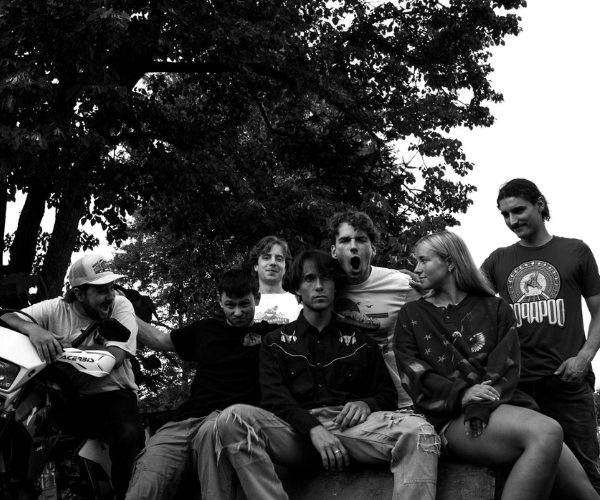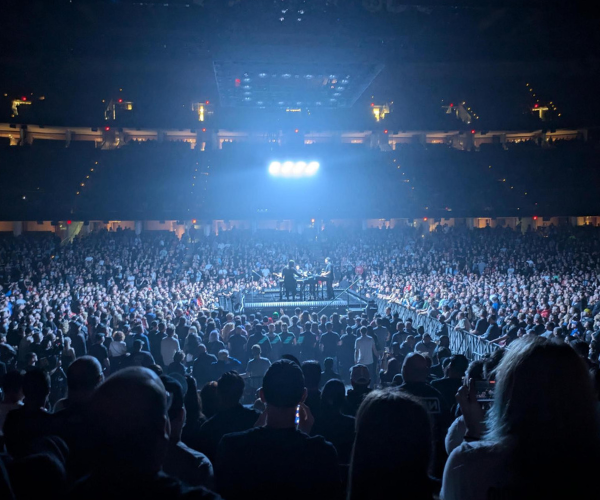It wasn’t a cup of coffee that jolted Peggy Spaeth early one morning at the Cleveland Heights-University Heights Public Library’s development day — it was a poem.
“[It] was so energizing. It was the perfect way to start the day,” recalls Spaeth, who soon began talking about how wonderful it would be if every event began with a poem, written by a local poet specifically for that occasion.
A few days later, Cleveland Heights Mayor Ed Kelley voiced his support for the idea, and Heights Arts — a nonprofit organization supporting the local arts community, headed by Spaeth — began sifting through applications and interviewing candidates for Greater Cleveland’s first official poet laureate.
Four years, three poets laureate and dozens of poems later, Heights Arts is publishing its first poetry anthology, Awake at the End.
“What we’re trying to say in the collection is that our love for poetry, our commitment to practicing the craft as long as we live and our commitment to sharing our poetry with others remains awake at the end of our laureateship,” explains Mary E. Weems, the 2007 and 2008 poet laureate and a co-editor of the book.
Each of the city’s three poets laureate featured in the book is different in his or her perspective, inspiration and theme.
The first poet laureate, named in 2005, is a writer and editor from a small Quaker town in New Jersey. Having moved to Cleveland Heights 30 years ago, Meredith Holmes finds inspiration for her work in how people feel (and don’t feel) like a part of the city in which they live.
Loren Weiss, an 82-year-old retired manufacturing executive and the 2006 poet laureate, discovered his love for writing and performing later in life. Writing about the simple pleasures, such as nature and leisure, one of his poems serves as the inspiration for the title of the anthology.
“Poetry gives me a chance to stand up in front of people and express myself to an audience and transfer some of my thoughts to other people,” he says. “It’s wonderful to turn a phrase and hear the audience chuckle.”
Weems is an assistant professor at John Carroll University whose poetry centers around “reality and life,” with themes such as social injustice toward African-Americans, the experience of women and her childhood. “I don’t write about the abstract, and I don’t write about the pretty side of things,” she says.
Since Cleveland Heights’ creation of its poet laureate program, Lakewood has followed suit.
For Cleveland Heights and Heights Arts, the anthology represents the city making its own mark in a artistic movement that includes cities such as San Francisco and Brooklyn, N.Y.
“We’ve created a project that is sustainable and not going to fade away,” says Spaeth. “It was time to document it.”
Click here to read an excerpt from Awake at the End.
“[It] was so energizing. It was the perfect way to start the day,” recalls Spaeth, who soon began talking about how wonderful it would be if every event began with a poem, written by a local poet specifically for that occasion.
A few days later, Cleveland Heights Mayor Ed Kelley voiced his support for the idea, and Heights Arts — a nonprofit organization supporting the local arts community, headed by Spaeth — began sifting through applications and interviewing candidates for Greater Cleveland’s first official poet laureate.
Four years, three poets laureate and dozens of poems later, Heights Arts is publishing its first poetry anthology, Awake at the End.
“What we’re trying to say in the collection is that our love for poetry, our commitment to practicing the craft as long as we live and our commitment to sharing our poetry with others remains awake at the end of our laureateship,” explains Mary E. Weems, the 2007 and 2008 poet laureate and a co-editor of the book.
Each of the city’s three poets laureate featured in the book is different in his or her perspective, inspiration and theme.
The first poet laureate, named in 2005, is a writer and editor from a small Quaker town in New Jersey. Having moved to Cleveland Heights 30 years ago, Meredith Holmes finds inspiration for her work in how people feel (and don’t feel) like a part of the city in which they live.
Loren Weiss, an 82-year-old retired manufacturing executive and the 2006 poet laureate, discovered his love for writing and performing later in life. Writing about the simple pleasures, such as nature and leisure, one of his poems serves as the inspiration for the title of the anthology.
“Poetry gives me a chance to stand up in front of people and express myself to an audience and transfer some of my thoughts to other people,” he says. “It’s wonderful to turn a phrase and hear the audience chuckle.”
Weems is an assistant professor at John Carroll University whose poetry centers around “reality and life,” with themes such as social injustice toward African-Americans, the experience of women and her childhood. “I don’t write about the abstract, and I don’t write about the pretty side of things,” she says.
Since Cleveland Heights’ creation of its poet laureate program, Lakewood has followed suit.
For Cleveland Heights and Heights Arts, the anthology represents the city making its own mark in a artistic movement that includes cities such as San Francisco and Brooklyn, N.Y.
“We’ve created a project that is sustainable and not going to fade away,” says Spaeth. “It was time to document it.”



